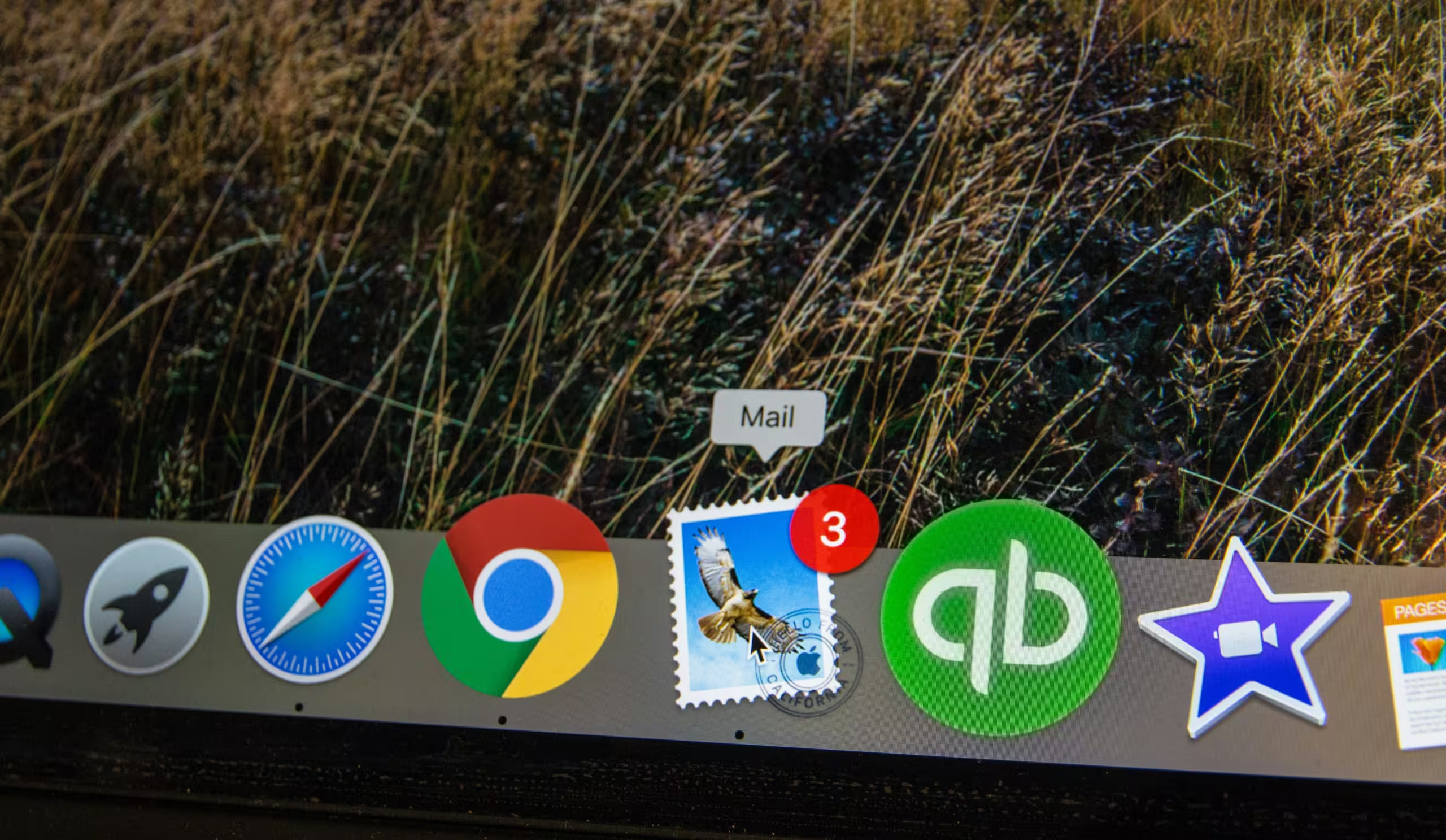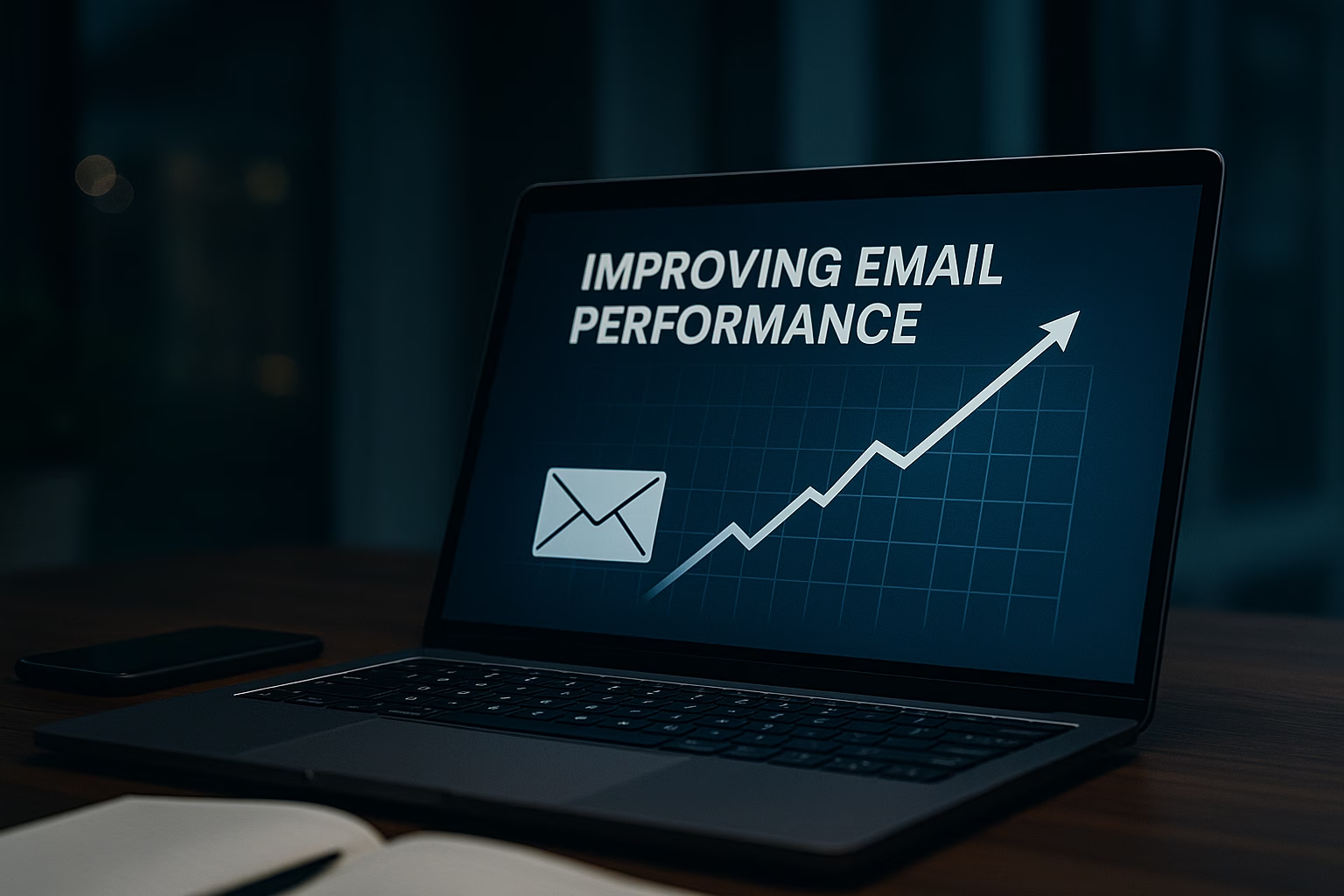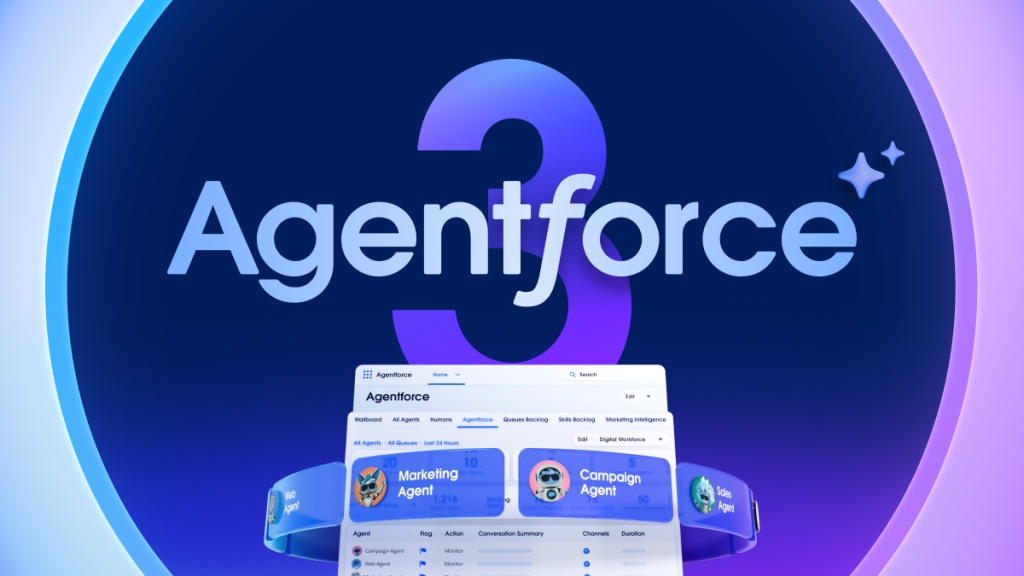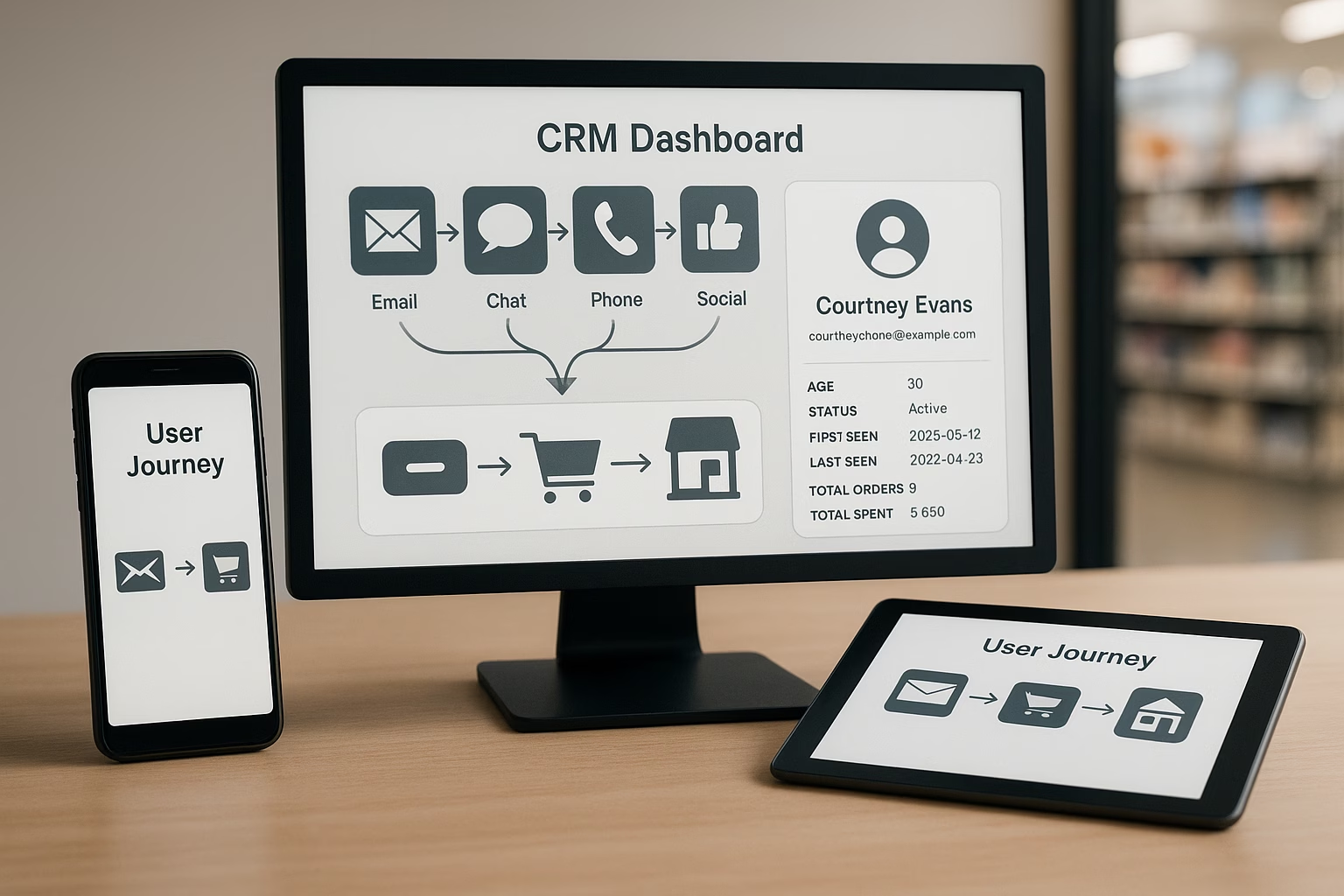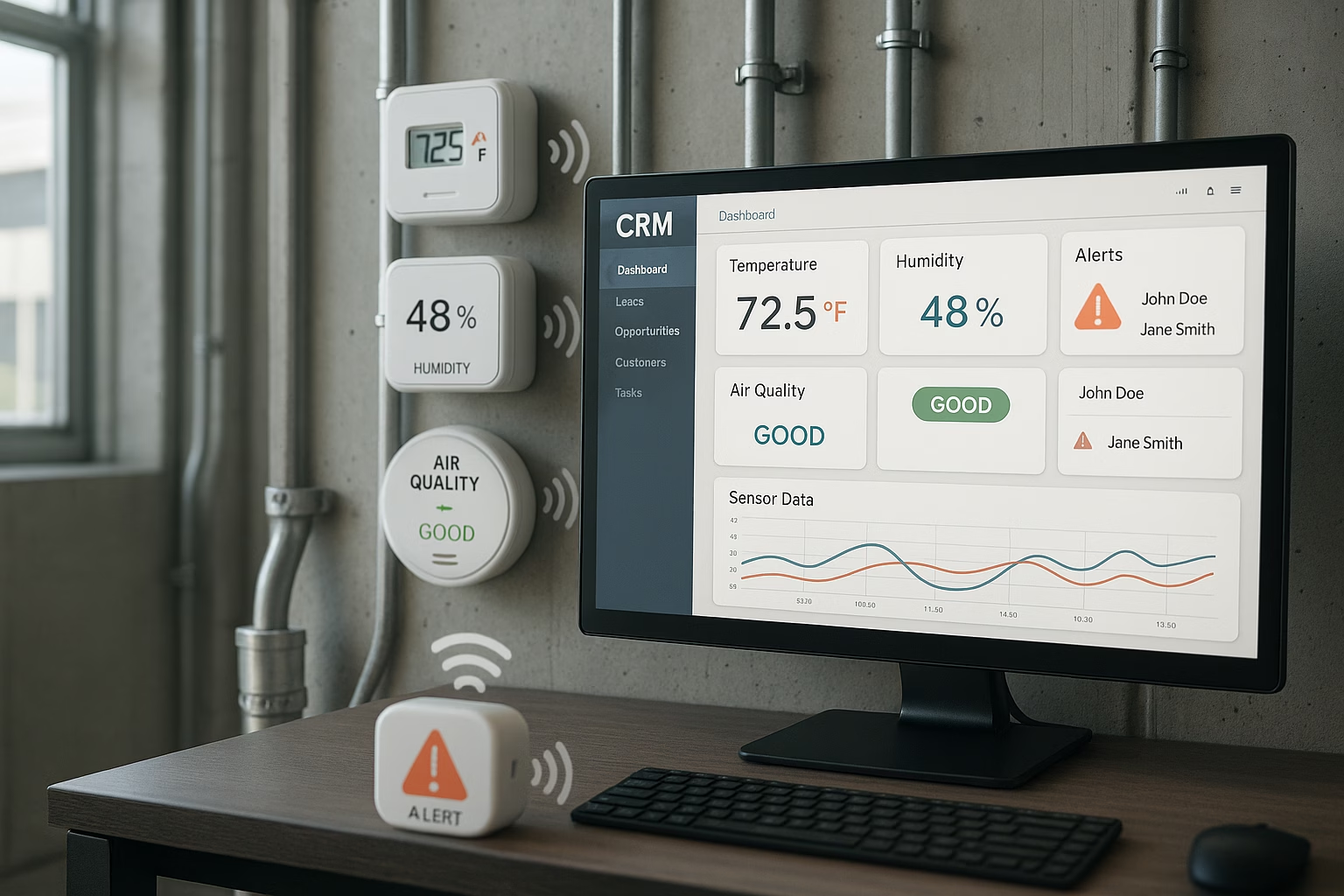By Martin H. Morrissette, Sirocco CMO – Book time with me
In B2B marketing, staying ahead means not just keeping up with trends but mastering the tools and strategies that drive meaningful results for your business. At Sirocco, we’ve seen firsthand how B2B marketing automation can revolutionise growth for businesses of all sizes. With the right tools and strategy, companies can unlock new levels of efficiency and personalisation. Marketing automation is a transformative approach that streamlines processes, enhances personalisation, and accelerates growth. By leveraging automation, you can optimise your marketing efforts, engage your audience with precision, and convert leads into loyal customers – all while freeing your team to focus on strategic innovation. This quick guide highlights the strategic advantages of B2B marketing automation, offering insights from our experts that empower your business to succeed.
Why B2B marketing automation matters
Marketing automation in the B2B space is about transforming how you connect with your prospects and customers. By automating repetitive tasks like email campaigns, social media scheduling, and lead nurturing, your team is liberated to focus on what really matters: building meaningful relationships and driving strategic initiatives. Marketing teams are often stretched thin, trying to balance personalisation with scalability. B2B marketing automation offers the perfect solution, taking over repetitive tasks while allowing teams to focus on strategy and relationship-building.
The true power of MA lies in its ability to enhance lead nurturing. Imagine delivering the right content to the right person at the exact moment they need it. With B2B marketing automation, this is the new standard. By segmenting your audience based on demographics, behaviours, and interests, you can tailor your messaging to speak directly to their needs, guiding them smoothly through your sales funnel. Our teams are happy to assist you with creating the right audiences and making suggestions on suitable content that keeps them engaged.
Data-driven insights and personalisation at scale
Beyond improving lead nurturing, marketing automation equips you with deep insights into your campaign performance. Tracking key performance indicators (KPIs) such as open rates, click-through rates, and conversion metrics allows you to refine your strategies in real time. This data-driven approach ensures that every campaign you launch is more effective than the last, maximising your marketing ROI and overall business growth. Marketing automation enables you to deliver messages that resonate on an individual level, fostering loyalty and driving long-term engagement. With dynamic content, your messaging can be tailored to align with each prospect’s preferences and behaviours, making every interaction feel personal and relevant.
Common B2B marketing challenges
B2B marketing teams face several complex and evolving challenges, many of which can hinder their ability to drive growth and engage buyers effectively. Let’s take a look at some of the key pain points that modern marketers like you might struggle with — and how marketing automation can offer solutions.
| Problem: Adapting to Evolving Buyer Behaviours One significant hurdle is adapting to the ever-evolving buying behaviours of B2B customers. Today’s buyers are self-educating more than ever, conducting over 70% of their research before even engaging with a sales representative(HubSpot Blog). This shift means that marketers must provide value at every stage of the buyer’s journey, focusing on delivering educational, trust-building content from the first touchpoint. Failure to meet these expectations can result in losing potential customers to competitors. | Solution: Marketing automation enables you to engage these well-informed prospects at the right moments. By nurturing leads with personalised content based on their behaviour and interests, you can meet buyers where they are—whether they’re exploring your blog, downloading a whitepaper, or attending a webinar. Automation ensures that prospects continue to receive valuable information even without direct sales contact, which increases your chances of closing the deal when they are ready to buy. |
| Problem: Budget and Resource Constraints Limited marketing budgets and team resources are common issues, particularly for small and mid-sized businesses. Many teams struggle to scale their efforts without stretching resources too thin or sacrificing quality. Balancing the need for high-quality campaigns with limited capacity often leads to missed opportunities. | Solution: By automating repetitive tasks such as email campaigns, social media scheduling, and lead scoring, marketing teams can achieve more with fewer resources. This frees up valuable time for your team to focus on strategy and high-value tasks, such as refining messaging or creating content. Marketing automation also enables small teams to compete with larger enterprises by executing sophisticated campaigns at scale, without a proportional increase in workload. |
| Problem: Data Overload and Effective Management B2B marketers often struggle with managing large volumes of customer data. It’s not just about collecting data—it’s about ensuring that data is accurate, actionable, and accessible across platforms. Poor data quality, lack of integration between systems, and inconsistent processes lead to missed opportunities and inefficient campaigns. | Solution: Implementing marketing automation allows for better data management. Platforms like HubSpot and Salesforce integrate seamlessly with CRMs, ensuring that your data is synchronised, clean, and up-to-date. Automation also helps to maintain data hygiene with features like automated list segmentation and regular updates, reducing the time spent on manual clean-up and ensuring more effective, data-driven campaigns. |
| Problem: Personalisation at Scale One of the most pressing challenges in B2B marketing is achieving personalisation at scale. Today’s buyers expect tailored experiences, yet delivering personalised content to hundreds or thousands of prospects across multiple channels can seem daunting, especially when balancing this with broader marketing initiatives. | Solution: Marketing automation platforms enable segmentation and dynamic content, allowing you to deliver customised messaging to individual prospects at scale. Dynamic content changes based on each recipient’s data, ensuring that every email, landing page, or ad feels personal and relevant. With AI and machine learning enhancements, automation tools can even predict what content each lead is most likely to engage with, improving your chances of conversion |
| Problem: Compliance with Data Privacy Regulations Adhering to data privacy regulations like GDPR and CCPA is another major challenge. Non-compliance not only risks hefty fines but can damage your brand’s reputation and erode customer trust. With the increasing complexity of these regulations, many businesses struggle to stay compliant while maintaining effective marketing practices. | Solution: Marketing automation platforms offer built-in compliance features, such as consent management and data anonymisation tools, to help you stay aligned with data privacy regulations. These features also help build trust with your audience by giving them transparency and control over how their data is used, all while reducing the risk of legal complications. |
Choosing the right Marketing Automation platform and getting started
Unlocking the full potential of B2B marketing automation begins with selecting the right platform—one that aligns with your business needs and scales with your growth. When evaluating platforms, prioritise solutions that offer robust features, scalability, and user-friendly interfaces. Integration capabilities are key; your chosen platform should seamlessly connect with your existing systems, such as your CRM, content management system, and website. Leading platforms like Salesforce, HubSpot, and Microsoft Dynamics provide a range of tools designed to cater to various business sizes and requirements.
At Sirocco, we’ve guided countless businesses in evaluating and implementing the most suitable marketing automation solutions. However, selecting the platform is just the first step. To truly harness its power, a well-thought-out implementation plan is essential:
- Set Clear Goals: Begin by defining what success looks like for your marketing automation efforts. Are you aiming to increase lead generation, improve lead nurturing, enhance customer retention, or all of the above? Clear objectives will guide your strategy and help you measure success.
- Segment and Clean Your Data: Quality data is the foundation of effective marketing automation. Before launching your campaigns, ensure your database is clean, up-to-date, and segmented appropriately. This involves regular data hygiene practices and precise segmentation based on demographics, behaviour, and purchasing intent.
- Craft Optimised Workflows: Develop workflows that reflect your customer journey, from awareness to conversion and beyond. Automation should streamline this journey, delivering the right content at the right time, based on triggers and predefined rules.
- Create Engaging Content: Your automation platform is only as strong as the content it delivers. Invest time in crafting high-quality, relevant content that resonates with your audience at each stage of the sales funnel. Whether it’s educational blog posts, personalised email campaigns, or targeted social media posts, your content must add value to your prospects’ experience.
- Measure, Analyse, and Refine: Continuous improvement is key to maximising the impact of marketing automation. Regularly review your KPIs, such as open rates, click-through rates, and conversion rates, to gauge performance. Use these insights to refine your strategies, optimise workflows, and improve content effectiveness over time.
Best practices (and some common pitfalls to avoid)
Success with marketing automation doesn’t come without challenges. Here are some modern best practices to help you maximise your impact:
Trigger-Based Marketing
Real-time engagement is crucial in today’s fast-paced marketing environment. By setting up triggers to respond to specific actions—such as visiting a key webpage or downloading a resource—you can increase engagement and conversion rates. This method allows you to deliver the right content at the perfect moment, improving the user experience and nurturing leads effectively.
Self-Nurturing Content
Empower your leads by offering content that allows them to educate themselves at their own pace. Whether through detailed guides, webinars, or case studies, self-nurturing content helps prospects progress through the buyer’s journey independently. This hands-off approach fosters trust and keeps leads engaged without overwhelming them with sales-driven messages.
Dynamic Content for Personalisation at Scale
Dynamic content is a powerful way to personalise experiences at scale. With the help of data-driven automation, you can tailor messaging across channels based on each recipient’s behaviour, demographics, and past interactions. From emails that change content based on customer preferences to personalised web experiences, dynamic content ensures every interaction feels relevant and timely. By leveraging this technique, businesses can boost engagement and increase their conversion rates.
AI-Powered Chatbots
AI-powered chatbots are excellent tools for streamlining initial interactions. These bots can answer frequently asked questions, gather critical information, and even qualify leads without human intervention. By automating these tasks, you free up your sales and marketing teams to focus on more complex activities, while also improving your prospects’ experience with prompt, 24/7 support.
Lead Scoring and Segmentation
Lead scoring systems assign a value to leads based on their behaviour and engagement, helping you prioritise your marketing efforts. High-value leads can be automatically directed to more personalised campaigns, while lower-value leads can be nurtured with general content. This approach ensures that you’re focusing on the leads most likely to convert, increasing your efficiency and ROI. Segmentation allows you to break your audience into distinct groups based on behaviour, demographics, or buying stage, ensuring that each receives relevant and targeted communication.
AI-Driven Automation
Artificial intelligence (AI) is increasingly embedded in marketing automation platforms, allowing marketers to enhance their campaigns with predictive insights and adaptive personalisation. AI can predict the best times to send messages, recommend content to individual users, and improve lead scoring accuracy. It’s a valuable tool for marketers aiming to stay ahead of the competition by delivering hyper-personalised content at scale.
Multi-Channel Personalisation
Leading organisations are investing in multi-channel personalisation to provide a seamless customer experience across various touchpoints. Integrating your marketing automation platform with other channels like social media, email, and even SMS ensures that your messaging is cohesive and aligned with your audience’s needs. Personalisation across multiple platforms helps improve engagement, nurture leads more effectively, and ultimately increase conversion rates.
Data Integrity and Compliance
Data quality is the backbone of effective marketing automation. Regularly cleaning and updating your data ensures that your communications are accurate and relevant. Additionally, staying compliant with regulations like GDPR and CCPA is non-negotiable. By automating compliance processes, you can build trust with your prospects while avoiding legal issues.
Best-in-Class Measurement and Optimisation
Measurement is critical to understanding the success of your marketing campaigns. Advanced marketing automation platforms offer robust analytics tools that track everything from open rates to revenue attribution. By regularly reviewing your KPIs—such as click-through rates, lead conversion metrics, and engagement data—you can refine your campaigns and workflows to improve results over time. AI-driven analytics take this a step further by providing actionable insights, helping you optimise strategies on the fly.
By following these best practices, you can ensure that your marketing automation strategy not only meets current standards but positions your business for future growth and innovation. If you need help implementing or refining your marketing automation efforts, Sirocco’s team is ready to assist with custom solutions tailored to your business needs.
However, be mindful of common pitfalls. Ensure your data is accurate and up-to-date to avoid sending irrelevant or outdated content. Balance your automation efforts to avoid overwhelming your audience with excessive messages; the goal is to provide value, not noise. At Sirocco, we’ve seen how strategic automation can help clients strike this balance, ensuring each touchpoint adds value.
What will the future of B2B Marketing Automation look like?
The future of B2B marketing is undeniably intertwined with automation, artificial intelligence (AI), and machine learning. These tools are set to continue evolving, offering forward-thinking businesses an unprecedented opportunity to lead in their industries. AI and machine learning are already revolutionising personalisation and predictive analytics, enabling more sophisticated, data-driven, and responsive campaigns. The ability to predict buyer behaviour, adapt messaging on the fly, and continuously refine strategies is transforming how businesses connect with their audience.
Moreover, as the digital ecosystem evolves, deeper integration with emerging technologies like the Internet of Things (IoT) and blockchain is on the horizon. These innovations will unlock new ways to enhance customer experiences, from hyper-personalised marketing touchpoints to transparent, secure data transactions. With these advancements, marketing automation is poised to deliver next-level efficiencies and engagement, enabling businesses to stay ahead in an increasingly competitive marketplace.
Now is the Time to Act
While the future of B2B marketing automation is exciting, it’s crucial to act now. The businesses that embrace these tools and strategies today will be the ones leading the way tomorrow. At Sirocco, we are committed to helping you navigate this transformation. Our team of experts can provide you with the guidance, tools, and implementation support needed to maximise the benefits of marketing automation in your organisation. If you’re ready to future-proof your marketing efforts and set your business on the path to success, reach out to our CMO, Martin. Let us help you unlock the full potential of your marketing automation journey.
